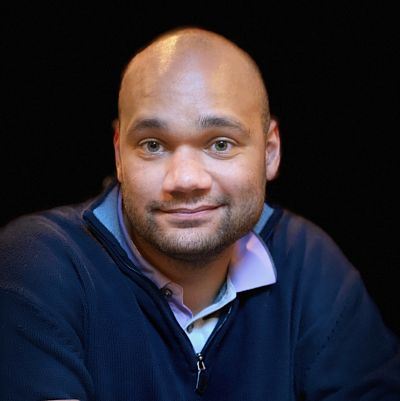Culturally Adapted-Cognitive Behavioral Therapy (CA-CBT)
with LGBTQ+ youth
Live-streamed May 24th, 2022 9:30 a.m.- 11:30 a.m.
Sarah Kiperman, PhD, LP, NCSP, RPT
Gabriel DeLong, MA, DTLLP
Only $10 for members and $20 for non-members
A link to a recorded version will be provided to all registered guests. You may register and receive a link to the recording up to one year after the live event. Participants cannot earn SCECH's for viewing the recorded version.
DESCRIPTION & OBJECTIVES:
This 2-hour professional development will review how to conduct culturally adaptive-cognitive behavioral therapy (CA-CBT), in the context of working with LGBTQ+ youth. While LGBTQ+ youth compose a resilient and strong community, they also face a unique set of stressors (e.g., coming out at home/school, culture-specific bullying, poor school climate, and support at local, state, and national levels). One way school-based mental health providers can partner with a youth to address these stressors is through CA-CBT. CA-CBT is an empirical and evidence-based method that accounts for culture-specificity and LGBTQ+ youths’ expertise in their own lived experience to guide the process of helping them to reframe negative, unhelpful thoughts to helpful, productive ones. In today’s session, practitioners will learn about the LGBTQ+ youth community, CA-CBT, and will have opportunities to practice and apply their newfound knowledge to the CA-CBT method in a combined approach.
Learning Objectives
- Develop a culture-specific familiarity with the LGBTQ+ youth community (e.g., terminology, lived experience, their strengths as a community, and the stressors navigated such as culture-specific bullying and coming out at home/school).
- Develop empirical and evidence-based techniques on how to conduct CA-CBT, using the ABCDEF method.
- Apply the CA-CBT approach in the culture-specific context of working with LGBTQ+ youth.
PRESENTER INFORMATION:
 Sarah Kiperman, PhD, LP, NCSP, RPT is an Assistant Professor at Wayne State University and a child psychologist through Beaumont Health System’s Center for Child Development. Dr. Kiperman's research involves advocating for youth wellness, culture-specific program development, informing socially just research methods, and advocating for LGBTQ+ youth (e.g., inclusive consent procedures for LGBTQ+ youth). Dr. Kiperman has most recently published:LGBTQ+ Youth’s Identity Development in the Context of Peer Victimization: A Mixed Methods Investigation, in International Journal of Environmental Research and Public Health (2022), There's No Place Like Home: Exploring Sexual and Gender Diverse Youth's Outcomes Related to Urban/Nonurban Settings, Opted Consent Procedure, and Social Support in Psychology in the Schools (2021), and Providing inclusive strategies for practitioners and researchers working with gender and sexually diverse youth without parental/guardian consent in the APA book, Supporting Gender Identity and Sexual Orientation Diversity in K-12 Schools.
Sarah Kiperman, PhD, LP, NCSP, RPT is an Assistant Professor at Wayne State University and a child psychologist through Beaumont Health System’s Center for Child Development. Dr. Kiperman's research involves advocating for youth wellness, culture-specific program development, informing socially just research methods, and advocating for LGBTQ+ youth (e.g., inclusive consent procedures for LGBTQ+ youth). Dr. Kiperman has most recently published:LGBTQ+ Youth’s Identity Development in the Context of Peer Victimization: A Mixed Methods Investigation, in International Journal of Environmental Research and Public Health (2022), There's No Place Like Home: Exploring Sexual and Gender Diverse Youth's Outcomes Related to Urban/Nonurban Settings, Opted Consent Procedure, and Social Support in Psychology in the Schools (2021), and Providing inclusive strategies for practitioners and researchers working with gender and sexually diverse youth without parental/guardian consent in the APA book, Supporting Gender Identity and Sexual Orientation Diversity in K-12 Schools.
 Gabriel DeLong, MA, DTLLP, is a doctoral student at Wayne State University in Counseling Psychology and a psychologist at Cruz Clinic. While he works with general mental health issues, Gabriel specializes in body image dissatisfaction, eating disorders, LGBTQ+ culture-specific issues (e.g., accepting one's identity, obtaining letters for gender-affirming surgery and hormone treatment), He works with a diverse population on social-emotional needs and conducts psychological, social, achievement, and cognitive assessments. Through his externship, Gabriel works with students at Hamtramck High school, a predominantly person of color high school, on social-emotional issues, including dating, first-generation American identity development, and other culture-specific needs. Gabriel approaches therapy from an existential perspective where meaning is made out of any situation. His background in theater and dance shows up in his intervention as he incorporates body movement, art, and music. Lastly, Gabriel incorporated a mindfulness approach that includes meditation and sound. Gabriel has most recently publishedProviding inclusive strategies for practitioners and researchers working with gender and sexually diverse youth without parental/guardian consent in, Supporting Gender Identity and Sexual Orientation Diversity in K-12 Schools.
Gabriel DeLong, MA, DTLLP, is a doctoral student at Wayne State University in Counseling Psychology and a psychologist at Cruz Clinic. While he works with general mental health issues, Gabriel specializes in body image dissatisfaction, eating disorders, LGBTQ+ culture-specific issues (e.g., accepting one's identity, obtaining letters for gender-affirming surgery and hormone treatment), He works with a diverse population on social-emotional needs and conducts psychological, social, achievement, and cognitive assessments. Through his externship, Gabriel works with students at Hamtramck High school, a predominantly person of color high school, on social-emotional issues, including dating, first-generation American identity development, and other culture-specific needs. Gabriel approaches therapy from an existential perspective where meaning is made out of any situation. His background in theater and dance shows up in his intervention as he incorporates body movement, art, and music. Lastly, Gabriel incorporated a mindfulness approach that includes meditation and sound. Gabriel has most recently publishedProviding inclusive strategies for practitioners and researchers working with gender and sexually diverse youth without parental/guardian consent in, Supporting Gender Identity and Sexual Orientation Diversity in K-12 Schools.

